The Battle of Tabuk: The Army of Hardship that Shattered the Roman Wall of Fear
The Battle of Tabuk stands out among the campaigns led by the Prophet Muhammad (peace be upon him), and his revered companions. While all battles were fraught with difficulty and challenge, Tabuk faced unprecedented hardship and adversity. It grappled with geographical isolation, unfavourable timing, scarcity of provisions, and a multitude of dangers. Tabuk defied the laws of nature and confronted the pinnacle of human tyranny. Moreover, it posed a challenge to the inherent human inclination towards comfort and ease as individuals marched barefoot through the scorching summer heat, lacking provisions or water, to confront the mightiest military force of its time.
In the annals of the Prophet's campaigns, characterised by extraordinary victories, Tabuk emerged as the epitome of courage in an immortal record. It marked the zenith of the Prophet's military expeditions, demonstrating the unwavering loyalty of his companions to Allah and his Messenger. Tabuk paved the way for the Prophet (peace be upon him) to ascend to higher realms as his nation stood prepared to continue its journey.
The Army of Hardship... A Summer Expedition to the Far Reaches of Arabia
In the ninth year after the Hijrah, around 630 CE, Prophet Muhammad (peace be upon him) embarked on the Tabuk expedition, a notable departure from the norm as he openly declared the destination and adversary, exposing the hypocrites among his followers.
This declaration sparked debates among Muslims, testing their resolve in the face of death and their attachment to comfort. However, faith, loyalty, and the promise of divine rewards prevailed over worldly concerns, prompting Muslims to rally to the cause with unwavering dedication, sacrificing themselves, their blood, and their wealth.
Following the conquest of Mecca and the collapse of Arab polytheists' military powers, the Islamic momentum appeared unstoppable, prompting the Romans to prepare for a counteroffensive. In response, Prophet Muhammad (peace be upon him) resolved to confront and surprise them before they could strike.
For this strategic confrontation, Prophet Muhammad (peace be upon him) chose Tabuk, the farthest point in Arabia near Roman territories, timed during the intense summer heat in a barren landscape devoid of water or pastures. Despite these challenges, the imperative of the moment surpassed all considerations, and the resolve of the believers remained steadfast. The Quran aptly termed this march "the Hardship," reflecting the trials and tribulations endured by the faithful: "Certainly has Allah been pleased with the believers when they pledged allegiance to you, [O Muhammad], under the tree, and He knew what was in their hearts, so He sent down tranquility upon them and rewarded them with an imminent conquest." (Quran, Surah Al-Fath 48:18)
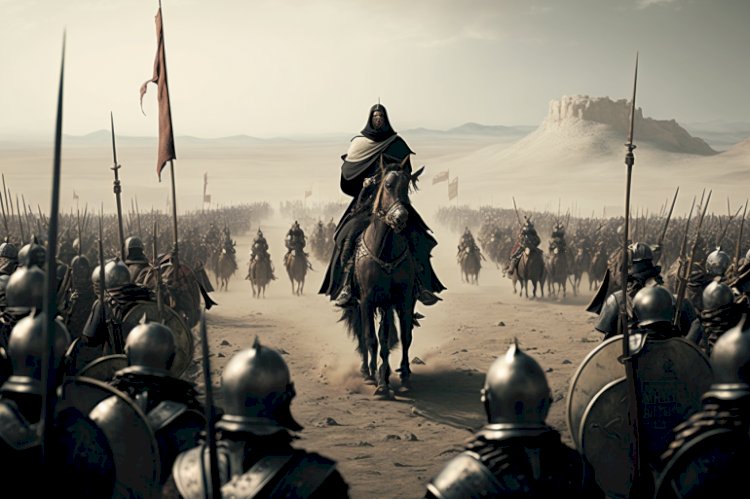
"Whoever equips the army of hardship, for him is paradise"... The Race of the Wealthy
In this critical situation, donating wealth transcended mere charity; it held a prestigious position due to the scarcity of resources needed to sustain the vast army. Here, the allure of divine promise intervened as the Messenger of Allah (peace be upon him) proclaimed to the Muslims, "Whoever equips the army of hardship, for him is paradise."
Responding eagerly to this call, the companions raced to fulfil Allah's command by generously preparing the army. Among them, Uthman ibn Affan (may Allah be pleased with him) hurried to his home and swiftly returned with a thousand dinars, placing them in the hands of the Messenger of Allah (peace be upon him). He then equipped the Prophet's army with three hundred camels, fully provisioned with weapons and gear, effectively providing for one-third of the army, as each camel could carry ten Muslim fighters.
Following his example, Abu Bakr al-Siddiq (may Allah be pleased with him) offered all his wealth, leaving nothing for his family. Omar ibn al-Khattab (may Allah be pleased with him) contributed half of his wealth, seeking to surpass Abu Bakr in generosity and sacrifice. The competition for paradise intensified with an outpouring of generosity from the companions, particularly the wealthy ones like Abbas ibn Abdul Muttalib, Talha ibn Ubaidullah, Muhammad ibn Maslama, and Aasim ibn Adi, may Allah be pleased with all of them.
"No penny left with me"... The dilemma and grief of Poor companions
On the contrary, the poor companions hastened to present whatever little they possessed from their savings and belongings. On the path to paradise, perhaps a single dirham surpassed a thousand, and a handful of dates weighed heavier on the scales than thousands of golden coins.
Among these remarkable instances is the story of the esteemed companion Alba ibn Zaid, whose heart was heavy as he found nothing to offer. As night fell, he stood in prayer, tears streaming down his face, then raised his hands to the heavens, saying, "O Allah, You have commanded jihad and encouraged it, yet I find nothing with which to aid Your Messenger. I pledge to give in charity every wrongdoing inflicted upon me, be it wealth, body, or dignity."
In the morning, the Prophet (peace be upon him) asked, "Who gave charity last night?" When no one stood up, he repeated the question, met with silence once more. Alba (may Allah be pleased with him) sensed he was the intended recipient of this inquiry, so he stood and shared his situation. The Prophet (peace be upon him) reassured him, "Good news! By the One in whose hand is the soul of Muhammad, it will be recorded in the accepted charity."
The Hypocrites' Army... Psychological Warfare from Within the Islamic Camp
The Tabuk expedition posed a multifaceted challenge for the Muslim community. While many companions successfully passed the internal psychological test of responding to the Prophet's call (peace be upon him), facing the might of the Romans proved daunting. Despite this, Muslims rallied their spirits to confront the challenge. However, they also encountered another formidable adversary: psychological warfare unleashed by certain hypocrites, manifesting in various forms:
- Incitement to disobey the Prophet's orders under the pretext of the expedition's hardships, advocating for delaying mobilisation until the end of the scorching season. This manipulation aimed to foster laziness and a preference for comfort. Yet, the believers' determination and eagerness for martyrdom shattered these sentiments, replacing them with a resolute call within their souls to seek Allah's pleasure.
- Casting doubt on the intentions of both wealthy and impoverished Muslims who contributed to the cause. This tactic was continuously employed whenever there was a call for giving or sacrifice. The Quran exposed the motives behind such actions and warned of severe punishment for those who mocked sincere contributors.
- Establishing a parallel organisational structure, exemplified by the Mosque of Dhirar, built in competition with the Prophet's Mosque. Seeking legitimacy, they requested the Prophet (peace be upon him) to pray there, aiming to establish an alternative model or provoke internal discord. However, divine intervention swiftly intervened, leading to the demolition and burning of this structure, extinguishing its threat.
The psychological warfare waged by the hypocrites posed a significant challenge during the Tabuk expedition. However, it ultimately failed to undermine the unity and resolve of the Muslim community under the leadership of Prophet Muhammad (peace be upon him).
The Army's March: Fifty Days of Heat, Hunger, and the Fabrication of Fear
The Tabuk expedition marked a pinnacle in the annals of the Prophet's military endeavours. Despite being significantly outnumbered by the might of the Roman Empire, the Muslim army, led by the Prophet Muhammad (peace be upon him), embarked on this arduous journey after meticulously organising its ranks.
Under the Prophet's guidance, banners were allocated: Abu Bakr held the grand rank, Az-Zubair the great banner, Usaid ibn Al-Hudair the banner of Aws, and Abu Dujana the Khazraj banner. Habab ibn Al-Mundhir Al-Jumahi was also mentioned in Ibn Asakir's historical account.
The tribes and clans were then assigned to their respective banners, each with its designated leader. Ubada ibn Bashir was entrusted with the crucial task of guarding the army, while Alqamah ibn Al-Faghoo'a Al-Khuza'i served as the Prophet's guide to Tabuk.
Thus commenced the victorious march from the city, making Tabuk the largest expedition both in duration and distance during the Prophet's era. The journey was fraught with challenges: the army, though sizable, moved slowly due to the difficult terrain and the scarcity of supplies. The scorching heat compounded the hardships, with water sources few and far between, and provisions dwindling by the day. The companions endured meagre rations, often subsisting on a mere sip of water and a single date.
The Prophet's route, documented by historians, revealed a series of stops known as the "Mosques of Tabuk." These served as waypoints where the army rested and established camps. Ibn Hisham documented 17 such mosques, highlighting the army's painstaking progress and the formidable challenges faced along the way.
The army's advance towards Tabuk showcased strength and grandeur, striking fear into the hearts of the outnumbered enemy. Upon sighting the Muslim army, the Romans fled in terror, achieving the expedition's objective without any combat or military confrontation. Consequently, territories previously loyal to the Romans, such as the principality of Dumat Al-Jandal and the principality of Aila (present-day Aqaba), submitted to the authority of the Prophet of Islam. He penned a treaty delineating their rights and obligations.
Following this nonviolent triumph, the Prophet (peace be upon him) chose to remain in Tabuk for approximately ten to twenty days, affirming his lack of fear towards the Romans and their allies. In this scenario, the Prophet defied the conventional practices of armies of his time, where typically they would only remain in the battlefield for three days. He embodied the roles of leader, messenger, intercessor, expert, teacher, and warrior.
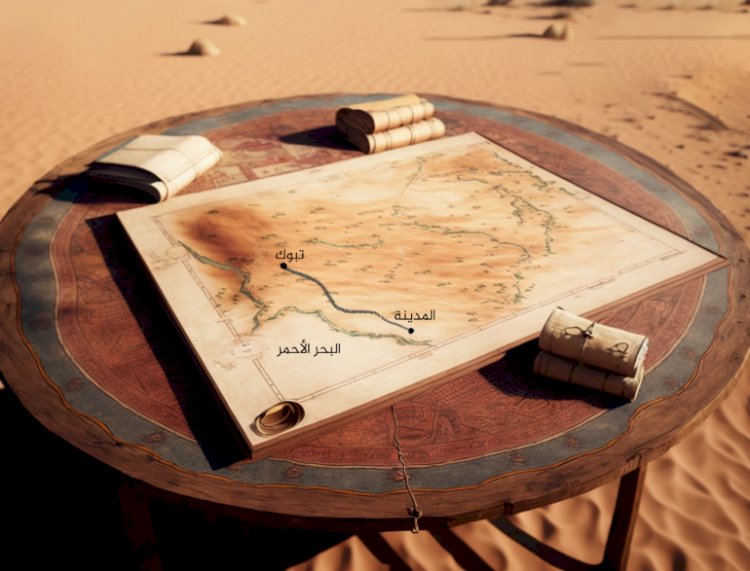
The Miracles of Tabuk: Divine Assistance in the Night of Surrender
The Tabuk expedition was replete with several miracles, among the most significant:
The Great Civilizational Miracle: Despite facing adverse circumstances, including shortages in supplies and provisions, the immense Muslim army maintained discipline and cohesion. This exemplified the triumph of principles over personal desires and inclinations.
The Miracle of the Cloud: When the army suffered from thirst and exhaustion due to scorching heat, a miraculous cloud appeared and quenched their thirst. This phenomenon, narrated by Omar ibn Al-Khattab and Ibn Abbas, symbolized divine intervention in alleviating their hardships.
The Miracle of Feeding the Army: Abu Sa'id Al-Khudri recounted how the companions requested permission from the Prophet Muhammad (peace be upon him) to slaughter their camels for food. However, upon Omar's suggestion, the Prophet supplicated for blessings upon the remaining provisions. Subsequently, every vessel in the army was filled with abundant food, demonstrating the power of prayer to multiply meager resources.
Blessings and Prosperity in Tabuk: Through the Prophet's supplication at Wadi Al-Mushaqiq, a barren valley transformed into a lush landscape with abundant water. This blessing resulted in sustained fertility and prosperity for generations, turning Tabuk into a flourishing oasis.
The Story of the Prophet's Camel: Another enduring miracle of Tabuk involves a hypocrite named Zaid ibn Al-Lasit, who doubted the Prophet's knowledge of his missing camel. Upon the Prophet's guidance, the companions found the camel exactly as described, affirming the Prophet's prophetic insight.
These miracles underscore the divine support bestowed upon the Muslim army during the Tabuk expedition, demonstrating the miraculous manifestations of divine assistance during their time of need.
The Tabuk expedition achieved significant results for the Muslims, including:
- Unifying and Strengthening the Islamic Community: Amidst the trials of Tabuk, the Muslims' unity was solidified, and their adherence to true Islamic principles was refined as they expelled the hypocrites who revealed their true colours in the face of adversity.
- Shattering the Roman Fear: With Caesar's retreat from the border, the Muslims realised their ability to confront formidable powers, thereby enhancing their honour and prestige.
- Extending the Borders of the Islamic State: As Arab tribes pledged allegiance to the Muslims, the era of Byzantine subjugation came to an end, showcasing the resilience and determination of the Islamic State.
- Establishing Muslim Authority: Through their victories and strength, the Muslims' authority spread across the region, establishing them as an unbeatable army and an indomitable force.
- Upon the Prophet's return to Medina with his victorious army, it was a time for reprimand and allegiance to the Islamic state. Arab delegations flocked to demonstrate their loyalty and support for the Islamic Caliphate, reflecting the tremendous success of the Tabuk expedition.
With these triumphs and accomplishments, the Tabuk expedition marked a pivotal moment in the history of the Islamic State. It showcased the strength and endurance of the Islamic Caliphate to the world and contributed to its expansion and consolidation of authority in the region.
(The Article is prepared based on the article published by Ameen Haballa in Arabic in Al Jazeera Documentary
https://doc.aljazeera.net/history/2023/3/30/%D8%BA%D8%B2%D9%88%D8%A9-%D8%AA%D8%A8%D9%88%D9%83-%D8%AC%D9%8A%D8%B4-%D8%A7%D9%84%D8%B9%D8%B3%D8%B1%D8%A9-%D8%A7%D9%84%D8%B0%D9%8A-%D8%AD%D8%B7%D9%85-%D8%AC%D8%AF%D8%A7%D8%B1)
Disclaimer
The views expressed in this article are the author’s own and do not necessarily mirror Islamonweb’s editorial stance.

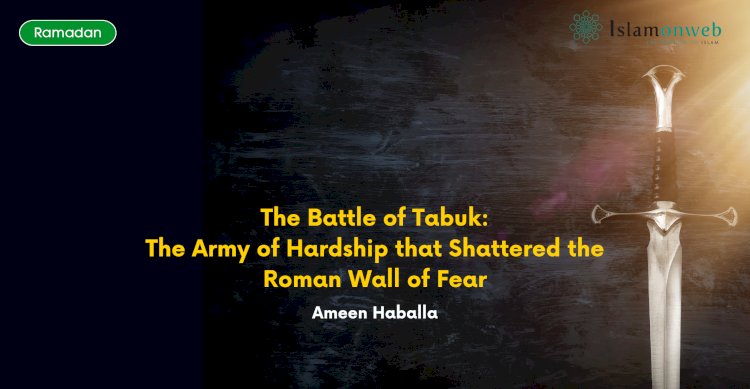



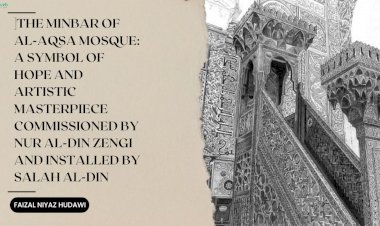
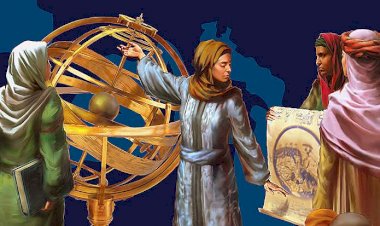

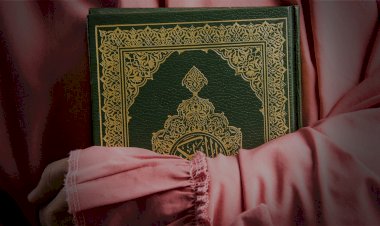
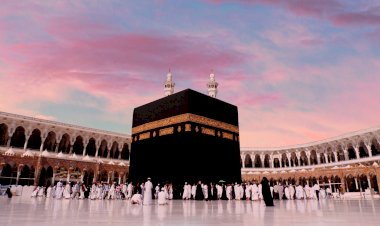
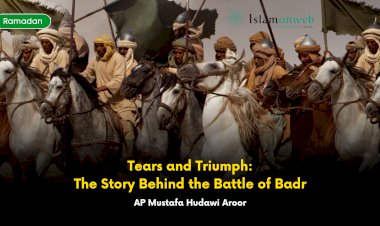














Leave A Comment